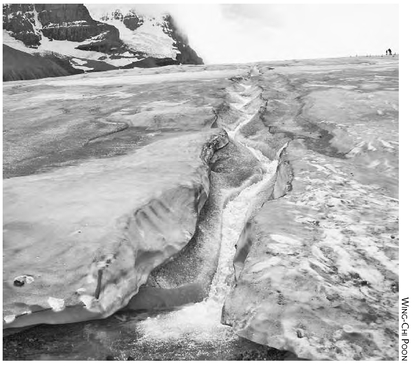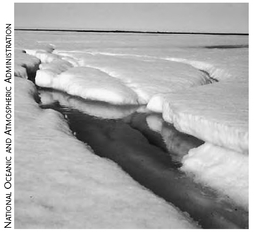Authors: Richard Heinberg
Peak Everything (24 page)
Many of the examples in the book have to do with promoting recycling programs. Of course, the behavior changes that will be required in the next decades will be on a different scale altogether, and the barriers will be many and deep. Moreover, social marketing, if it is to accomplish much in this context, will have to overcome a tremendous tide of messages running in the opposite direction â i.e., the pied-piper tune of the advertisers telling one and all to buy and consume more stuff, and seeking to convince us that the consumptive party is only just beginning. Can social marketers, with their typically minuscule budgets, hope to parry this cheerier and far more formidably financed message with one asking for what amounts to personal sacrifice of convenience and comfort?

Edward Bernays (1891-1995), Freud's nephew and one of the founders of the public relations industry.
In my view, social marketing could only be of much help if it were applied on a scale far beyond anything discussed in
Fostering Sustainable Behavior.
We will need Washington, Hollywood, Madison Avenue, Main Street, and Wall Street all on board delivering a coordinated message to both the elites and the masses â as
was the case during World War II. We will need the kind of cooperative effort that Cuba mustered during its Special Period, when collective survival required a rapid, systemic reform of the nation's food and transport systems. But how can collective work on such a scale be commandeered in peacetime, and in democratic, free-market societies?
Fostering Sustainable Behavior.
We will need Washington, Hollywood, Madison Avenue, Main Street, and Wall Street all on board delivering a coordinated message to both the elites and the masses â as
was the case during World War II. We will need the kind of cooperative effort that Cuba mustered during its Special Period, when collective survival required a rapid, systemic reform of the nation's food and transport systems. But how can collective work on such a scale be commandeered in peacetime, and in democratic, free-market societies?
This is no small problem. Advertisers, manufacturers, politicians, economists, and the general public will all have to grow some wisdom, and do so quickly to override customary impulses toward individualism and the preservation of familiar comforts.
Rob Hopkins and Robert Hirsch have both spoken of our need for mobilization regarding Peak Oil and Climate Change as being on the same scale as the Second World War. The evidence plainly shows that the threat to our collective survival presented by Peak Oil and Climate Change today is greater than that posed by the Axis powers during the 1940s. If ever in the past a heroic collective effort was called for, it is needed even more now.
Do I think it's going to happen? Frankly, it's not likely. Is it possible in principle? Yes, just barely. As long as there is life and breath, we should be working toward that end. If nothing else, we'll feel better about ourselves and about life in general if we at least try.
8
Bridging Peak Oil and Climate Change Activism

T
HE PROBLEMS OF Climate Change and Peak Oil both result from societal dependence on fossil fuels. But just how the impacts of these two problems relate to one another, and how policies to address them should differ or overlap, are questions that have so far not been adequately discussed.
HE PROBLEMS OF Climate Change and Peak Oil both result from societal dependence on fossil fuels. But just how the impacts of these two problems relate to one another, and how policies to address them should differ or overlap, are questions that have so far not been adequately discussed.
Despite the fact that they are closely related, the two issues are in many respects dissimilar. Climate Change has to do with carbon emissions and their effects â including the impacts on human societies from rising sea levels, widespread and prolonged droughts, habitat loss, extreme weather events, and so on. Peak Oil, on the other hand, has to do with coming shortfalls in the supply of fuels on which society has become overwhelmingly dependent â leading, certainly, to higher prices for oil and its many byproducts, and perhaps to massive economic disruption and more oil wars. Thus the first has more directly to do with the environment, the second with human society and its dependencies and vulnerabilities. At the most superficial level, we could say that Climate Change is an end-of-tailpipe problem, while Peak Oil is an into-fuel-tank problem.
Because of this crucial divergence, the training and priorities of people who study one problem often differ from those of people who study the other. Most advocates for the Peak Oil concept â sometimes known as “depletionists” â are energy experts, economists,
journalists, urban planners, or workers retired from the oil industry (usually geologists or petroleum engineers). Among climate analysts and activists there are more environmentalists, fewer energy experts, and far fewer retired oil industry employees. It is my experience that, when placed in the same room together, the two groups often talk past one another.
journalists, urban planners, or workers retired from the oil industry (usually geologists or petroleum engineers). Among climate analysts and activists there are more environmentalists, fewer energy experts, and far fewer retired oil industry employees. It is my experience that, when placed in the same room together, the two groups often talk past one another.
My own background is primarily as an environmentalist: I teach a college course on human ecology and have been writing about ecological issues for 15 years or so; at the same time, I find myself identified primarily as a Peak Oil activist, having written three books about the subject and having given something like 300 lectures on it. To me, head-butting arguments between the two groups as to which problem is more serious constitute a peculiar kind of hell, in that such arguments can only hamper the efforts of both groups to do what we all agree is essential â avert environmental and human catastrophe. Nevertheless, disagreements and misunderstandings are already emerging for the simple reason that advocates on both issues are competing to persuade the public of the central importance of their own cause.
Since such competitive disagreements are ultimately damaging to our broader collective interests, it seems important to devote some effort toward openly discussing the differences and similarities of the issues themselves, as well as the priorities and views of their respective advocates. This essay is intended to be exploratory and descriptive rather than polemic; my assumption is that it is better for the issues to be clarified and discussed than for them to remain unarticulated. My thesis is that both groups are essentially working toward a reduction in society's consumption of fossil fuels, and that cooperative efforts between the two groups could substantially strengthen their arguments and their effectiveness at persuading policymakers.
Differing PerspectivesWhile the Peak Oil and Climate Change issues may themselves be relatively clear and discrete, the groups of scientists and activists who study and organize around them are far from being internally homogeneous. Some individuals and groups working on issues related
to oil and natural gas depletion are well informed about climate science, while some are not. Some climate protection groups are sensitive to fuel-supply vulnerability issues; others are not. Some Peak Oil activists are what have come to be known in the blog world as “doomers” â they believe that there is no hope for the preservation of modern civilization in any recognizable form; others are “techno-fixers,” who think that the world will adjust to oil depletion â painfully perhaps, but in the end successfully â through conservation and the development of alternative energy sources. Similarly there are “moderate” Climate Change scientists and activists who see the problem as serious but solvable, while there are some who believe that the world has already passed the tipping point beyond which catastrophic impacts are inevitable. It is probably fair to say that the substantial majority of both groups find themselves somewhere midway between the extreme positions staked out by some of their spokespeople.
to oil and natural gas depletion are well informed about climate science, while some are not. Some climate protection groups are sensitive to fuel-supply vulnerability issues; others are not. Some Peak Oil activists are what have come to be known in the blog world as “doomers” â they believe that there is no hope for the preservation of modern civilization in any recognizable form; others are “techno-fixers,” who think that the world will adjust to oil depletion â painfully perhaps, but in the end successfully â through conservation and the development of alternative energy sources. Similarly there are “moderate” Climate Change scientists and activists who see the problem as serious but solvable, while there are some who believe that the world has already passed the tipping point beyond which catastrophic impacts are inevitable. It is probably fair to say that the substantial majority of both groups find themselves somewhere midway between the extreme positions staked out by some of their spokespeople.

This photo, taken by Wing-Chi Poon on 4
th
July 2005 at the tip of Athabasca Glacier, Jasper National Park, Alberta, Canada, shows a river of melt-water running down the slope of a toe of the Glacier. Globally, virtually all glaciers are in retreat. This implies future fresh water shortages for hundreds of millions or billions of people in regions (including Ecuador, Peru, Bolivia, and the Himalayas) that rely on glacier melt-water during summer months.
th
July 2005 at the tip of Athabasca Glacier, Jasper National Park, Alberta, Canada, shows a river of melt-water running down the slope of a toe of the Glacier. Globally, virtually all glaciers are in retreat. This implies future fresh water shortages for hundreds of millions or billions of people in regions (including Ecuador, Peru, Bolivia, and the Himalayas) that rely on glacier melt-water during summer months.
So, given this lack of homogeneity within the groups, it would be inappropriate to generalize too much and I will try as best I can to remain sensitive to these differences and overlaps during the following discussion. After giving some thought to the matter, I have chosen not to mention names of individuals who hold the views that I will be describing.
Let us begin with the group I know better â the depletionists. It is fair to note that some Peak Oil analysts seem to be of the opinion that oil depletion constitutes a solution to the dilemma of global greenhouse gas emissions, or that Climate Change is actually not a problem at all. This appears to be the view primarily of some former oil industry geologists, but is probably not that of the majority of depletion analysts. The view is rarely stated openly (I was unable to find a glaring instance in print, though I have heard it expressed in conversation). Nevertheless, it is a notion that understandably causes concern and consternation among Climate Change activists.

As arctic ice melts, it leaves much darker open water, which absorbs more heat from sunlight, causing yet more ice to melt â a reinforcing feedback loop. It is now projected that the northern polar region will be free of ice during the summer months within three or four decades.
For their part, many Climate Change activists and experts see global warming as potentially having such devastating consequences, not just for humans but for the whole biosphere, that Peak Oil seems a trivial concern by comparison. They argue that even if global oil production peaks soon, this will provide no solution whatever to Climate Change because society will
replace oil with coal and other low-grade fossil fuels, which will simply increase greenhouse gas emissions. Moreover, since the remedies for carbon emissions that climate activists propose will inevitably lead to increased energy efficiency and a reduction in oil consumption, they often feel such efforts constitute an adequate answer to the Peak Oil problem.
replace oil with coal and other low-grade fossil fuels, which will simply increase greenhouse gas emissions. Moreover, since the remedies for carbon emissions that climate activists propose will inevitably lead to increased energy efficiency and a reduction in oil consumption, they often feel such efforts constitute an adequate answer to the Peak Oil problem.
Most oil depletionists (excepting the small group discussed above) appear to hold the opinion that Climate Change is indeed a legitimate concern; however, since the economic impact of Peak Oil looms in the immediate future, the economic and geopolitical chaos that may be triggered by declining global fuel supplies pose the more urgent threat. Some have argued that if Peak Oil results in near-term economic collapse and wars over dwindling energy resources, these events will seriously or terminally undermine the ability of national leaders to undertake the cooperative, long-range planning necessary to reduce carbon emissions.
Other books
The Fig Tree Murder by Michael Pearce
Eternal Hearts by Tamsin Baker
The Bean Trees by Barbara Kingsolver
Digger 1.0 by Michael Bunker
Into the Savage Country by Shannon Burke
Shaka the Great by Walton Golightly
A Strange Affair by Rosemary Smith
In the Loyal Mountains by Rick Bass
KCPD Protector by Julie Miller
Third Grave Dead Ahead by Jones, Darynda